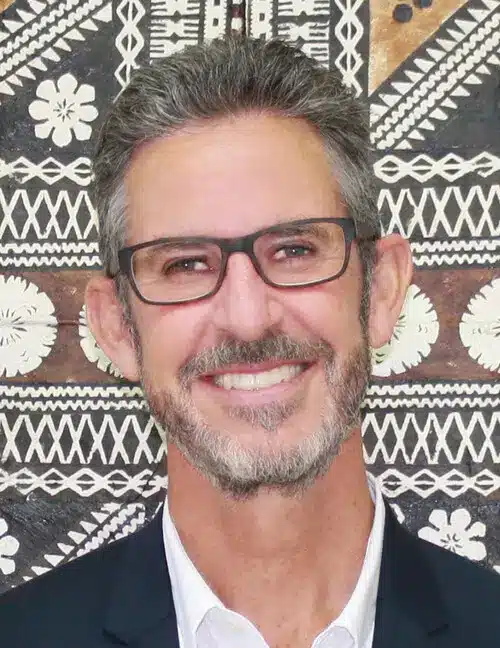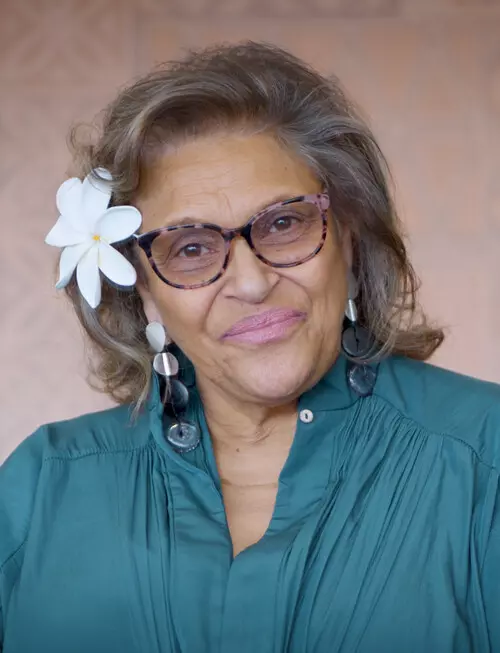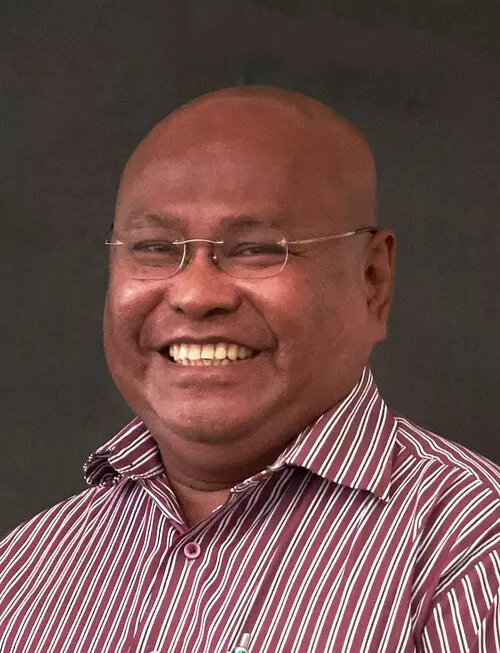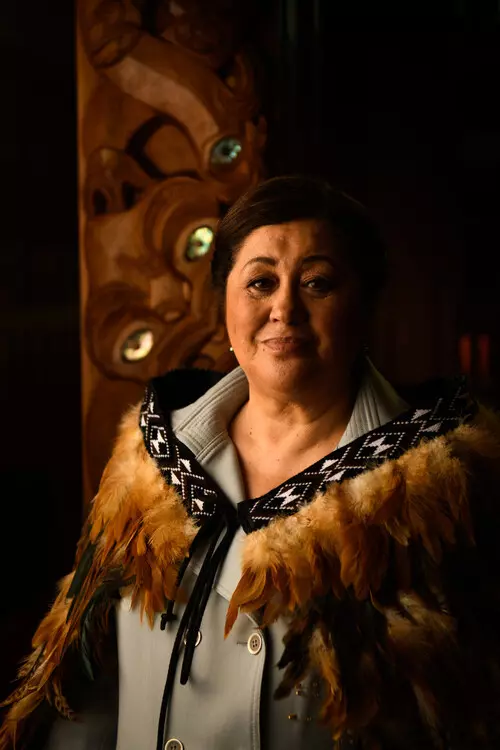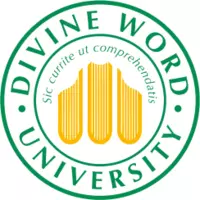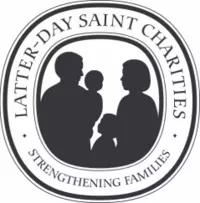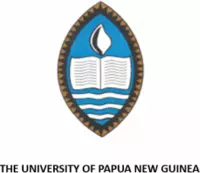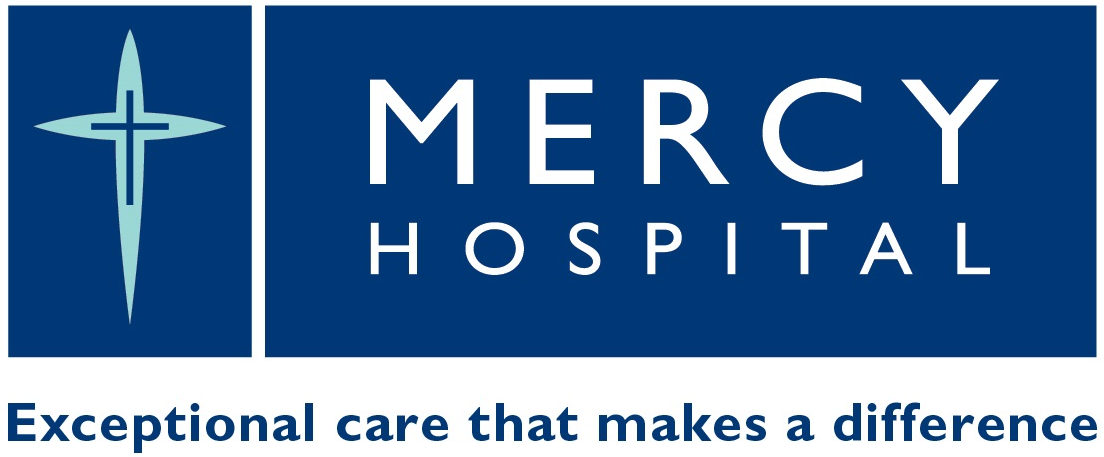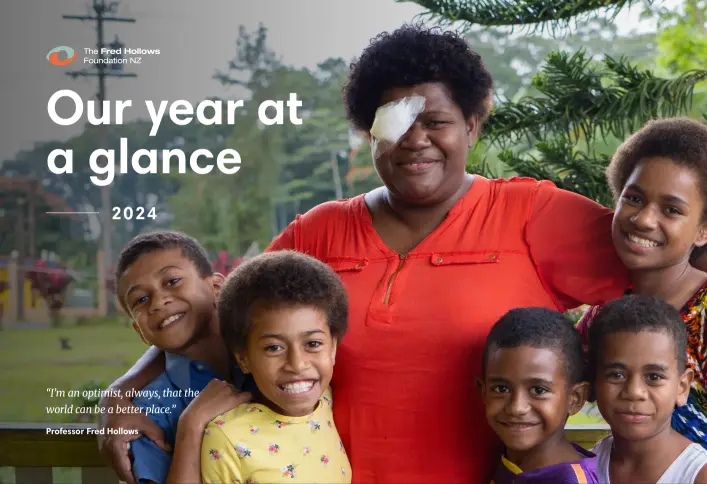
Our year at a glance
2024
Professor Fred Hollows
01 Our Vision / Our Purpose
Our Vision
A world in which no person is needlessly blind or vision impaired.
Our Purpose
We work to end avoidable blindness and vision impairment in the Pacific.
We advocate for the right of all people to high-quality and affordable eye care.
We strive for eye care to be locally-led and accessible to all. In doing this we continue Fred’s legacy.
04 Throughout the Pacific
Country highlights
We work alongside governments, ministries and national departments of health, local health authorities and universities in the Pacific to progress national eye health priorities. These actions develop each country’s capacity to deliver quality eye health services through the education, training, and ongoing support of eye care doctors and nurses who provide surgical clinics and outreaches. Each milestone we reach together contributes towards improved livelihoods and economic wellbeing due to stronger, more resilient, and accessible health systems.
Tap a country below to see the 2024 achievements.
We provide support in
- Fiji
- Kiribati
- Papua New Guinea
- Samoa
- Solomon Islands
- Tonga
- Vanuatu
Other Countries
In addition to the countries above, we also provided support to the Republic of Marshall Islands, Nauru and Tuvalu and have worked with the health authorities in the Cook Islands, Federated States of Micronesia, Niue, Timor-Leste, and Tokelau to train 47 eye care clinicians. At the request of these Pacific Island governments, we supported eye care outreach services in their countries and the training of eye care doctors and nurses. We also continue to work with these countries on other eye health system requirements in their countries and assess these based on needs and available resources.
Where we work
Training to date:
12 Foundation-sponsored eye doctor graduates
6 Foundation-sponsored trainee eye doctor graduates
59 Foundation-sponsored eye nurse and eye care clinician graduates
In 2024:
- 2 eye doctors graduated with a Master of Medicine in Ophthalmology from Fiji National University
- 1 trainee eye doctor completed a Postgraduate Diploma in Ophthalmology from Fiji National University
- 2 eye nurses graduated with a Postgraduate Diploma in Eye Care from Fiji National University
- 77 eye care professionals participated in professional development workshops and training
- 14 children received sight restoring surgery during Paediatric week
- 1 National Eye Coordinator position was established
Training to date:
1 Foundation-sponsored eye doctor graduate
1 Foundation-sponsored trainee eye doctor graduate
15 Foundation-sponsored eye nurse and eye care clinician graduates
In 2024:
- 4 eye care professionals participated in professional development workshops and training
- 2 Pacific outreaches were held to address the backlog of eye care patients
- 1 eye nurse representing Kiribati attended the annual Royal Australian and New Zealand College of Ophthalmologists conference
- World Sight Day eye health promotion activities reached approximately 5,000 school children at 11 primary schools
Training to date:
5 Foundation-sponsored eye doctor graduates
7 Foundation-sponsored trainee eye doctor graduates
141 Foundation-sponsored eye nurse and eye care clinician graduates
In 2024:
- 1 eye doctor graduated with a Master of Medicine in Ophthalmology from the University of Papua New Guinea
- 5 trainee eye doctors completed a Postgraduate Diploma in Ophthalmology from the University of Papua New Guinea
- 11 eye nurses graduated with an Advanced Diploma in Eye Care from Divine Word University
- 98 eye care professionals participated in professional development workshops and training
- The National Eye Health Strategic Plan has been fully endorsed and approved by the National Department of Health, which provides a strategic framework for preventing blindness, improving access to quality eye care services, and ensuring equitable eye health outcomes for the population through coordinated policies, resources, and interventions
- The Papua New Guinea Centre for Eye Health groundbreaking ceremony was held in November 2024, signifying the commencement of the construction phase for the new eye care facility
- An outreach held in Popondetta strengthened inclusive eye care approaches, with an increased number of women and people living with disabilities receiving vital eye care services
Training to date:
1 Foundation-sponsored eye doctor graduate
20 Foundation-sponsored eye nurse graduates
In 2024:
- 25 eye care professionals participated in professional development workshops and training
- The Samoa National Eye Plan was endorsed and launched
- A Rapid Assessment of Avoidable Blindness (RAAB) survey was completed. The survey provides critical data on the prevalence, causes and risk factors of blindness and vision enabling evidence-based planning and resource allocation to improve eye health services and prevent avoidable blindness
- 1 National Eye Coordinator position was established
Training to date:
5 Foundation-sponsored eye doctor graduates
1 Foundation-sponsored trainee eye doctors
44 Foundation-sponsored eye nurse graduates
In 2024:
- 2 eye nurses graduated with a Postgraduate Diploma in Eye Care from Fiji National University
- 49 eye care professionals participated in professional development workshops and training
- The National Eye Conference conducted at the Regional Eye Centre (REC) was attended by 36 local eye care clinicians and 10 non-communicable disease nurses from across the country
- The Eye Care Situational Analysis Tool (ECSAT) was completed - a World Health Organization tool that helps countries assess their eye health system’s capacity, identify gaps, and develop strategic plans to improve eye care services and outcomes
- The REC was the first Pacific eye clinic to participate in the Climate Impact Assessment, demonstrating the benefits of its sustainable design A World Sight Day eye health promotion activity reached 312 school children
Training to date:
2 Foundation-sponsored eye doctor graduates
15 Foundation-sponsored eye nurse graduates
In 2024:
- 2 eye nurses graduated with a Postgraduate Diploma in Eye Care from Fiji National University
- 4 eye care professionals participated in professional development workshops and training
- An evaluation of the Tonga eye screening van outreach programme was completed, demonstrating its effectiveness in reaching remote and disadvantaged communities
- A National Eye Conference was held to plan their goals and priorities for eye care
- The Head of the Ophthalmology Department in Tonga participated in an outreach to Nauru, helping to provide vital services for the country
Training to date:
1 Foundation-sponsored eye doctor graduate
1 Foundation-sponsored trainee eye doctor graduates
17 Foundation-sponsored eye nurse and eye care clinician graduates
In 2024:
- 1 trainee eye-doctor completed a Postgraduate Diploma in Ophthalmology from Fiji National University
- 2 eye nurses graduated with a Postgraduate Diploma in Eye Care from Fiji National University
- 13 eye care professionals participated in professional development workshops and training
- The results of the Vanuatu RAAB survey were launched at their National Eye Conference in August 2024
- The Vanuatu National Eye Centre participated in a Climate Impact Assessment which demonstrated the benefits of its sustainable design
Bringing eye care to Tokelau
Last August, a Foundation-supported Outreach Team travelled over 30 hours by boat to reach Tokelau, a remote island territory made up of three small atolls. The team spent three weeks travelling between the atolls with all their equipment. Despite the logistical difficulties, they screened 94% of the population, identifying 44 patients in need of cataract surgery. This year, those patients will embark on the same long journey to Samoa for sight-restoring surgery.
With no resident eye health professionals in Tokelau, outreach programmes like this are vital. By bringing services directly to communities, we are ensuring even the most remote populations have the chance to see clearly again.
05 Centre for Eye Health
Centre for Eye Health groundbreaking ceremony
In November 2024, we celebrated a major milestone: the groundbreaking ceremony for Papua New Guinea’s new Centre for Eye Health, in Port Moresby.
This purpose-built eye care training and service facility is a huge step forward in tackling avoidable blindness and vision impairment in Papua New Guinea, where 5.6 per cent of people over 50 live with blindness.
Backed by the Papua New Guinea, Australian, and New Zealand governments, The Church of Jesus Christ Latter-day Saints, The Fred Hollows Foundation, and The Fred Hollows Foundation NZ, the Centre will offer specialised eye care, housing the country’s first diabetic retinopathy clinic and paediatric ophthalmology services.
It will also expand training for eye doctors, eye nurses, and optometrists, with the aim to train an additional 10 eye nurses per year and have two eye doctors graduating every year by 2030. This will help to address the severe shortage of eye care specialists in Papua New Guinea, where only seven of the 22 provinces currently have a resident eye doctor.
As part of Papua New Guinea’s National Eye Health Strategic Plan (2025–2029), the Centre will be jointly operated by Port Moresby General Hospital and the University of Papua New Guinea’s School of Medicine and Health Sciences, with continued support from The Fred Hollows Foundation NZ and other partners.
Construction of this two-storey, climate-resilient facility is scheduled to finish by April/May 2026 and following equipment fit out and building commissioning, be opened in August 2026. Once complete, the Centre will make quality eye care more accessible, transforming lives and building a more effective and independent eye health system in Papua New Guinea.
We are very grateful for the significant contributions made to this important project. This investment in eye health is an investment in Papua New Guinea’s future.
